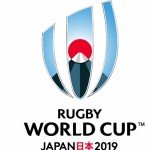Dublin, Nov 12, 2015: World Rugby has announced details of the regional qualification process for Rugby World Cup 2019 in Japan.
Following the most compelling and competitive Rugby World Cup to date, the qualification process is designed to deliver the top 20 teams in the world to rugby’s showcase tournament, while promoting a pathway for all full member unions to qualify.
With 12 teams having secured their place at Japan 2019 courtesy of finishing in the top three of their respective pools, the remaining eight places will be determined by a process of regional and cross-regional qualifiers which will begin in 2016 and, for the first time, a stand-alone round-robin repechage tournament to determine the final qualifier in 2018. All teams will be determined by November 2018.
RWC 2019 qualification principles
• 12 automatic qualifiers: Top three teams in each Rugby World Cup 2015 pool automatically qualify for Japan 2019 (New Zealand, Australia, South Africa, Argentina, Ireland, Scotland, France, Wales, Georgia, Japan, England and Italy)
• One European qualifier: The highest-ranked team from the Rugby Europe Championship (excluding Georgia) will qualify for RWC 2019
• Two Oceania qualifiers: Two teams to qualify for RWC 2019 from a Pacific Tri-Nations championship played on a home and away basis over June 2016 and 2017
• One Europe/Oceania play-off qualifier: The third place team from the Pacific Tri-Nations will play a home and away play-off with the second-ranked team in the Rugby Europe Championship (excluding Georgia) with the winner on aggregate qualifying for RWC 2019. The loser will qualify for the repechage tournament
• Two Americas qualifiers: Canada and USA will play home and away with the winner on aggregate qualifying for RWC 2019. The loser will play home and away against the top-ranked South American team (excluding Argentina) home and away with the winner on aggregate qualifying for RWC 2019. The loser of this match qualifies for the repechage tournament
• One African qualifier: The winner of the Rugby Africa Championship will qualify for RWC 2019. The runner-up qualifies for the repechage tournament
• Asia/Oceania play-off for repechage place: The highest-ranked team from the Asian Rugby Championship (excluding Japan) will play home and away against the winner of the Oceania Cup with the winner on aggregate qualifying for the repechage tournament
• One repechage qualifier: The repechage tournament will feature four teams playing in a round-robin format with the winners qualifying for RWC 2019
Within a process designed to broaden opportunity and deliver the top teams in performance to rugby’s showcase event, there will be no direct qualifier from Asia owing to Japan’s direct qualification from RWC 2015, though there will be an opportunity for the highest-ranked side from the Asian Rugby Championship in 2018 to qualify via the repechage tournament, as was the case for RWC 2015.
Despite not claiming an automatic berth, there is an opportunity for all three Pacific Island nations to qualify for Japan 2019 with a new Pacific Tri-Nations competition across June 2016 and 2017 delivering two qualifiers and further opportunity via a new Europe/Oceania play-off. Additionally, the Oceania Cup winners will play the highest-ranked Asian Rugby Championship team for a place in the repechage tournament.
World Rugby Chairman Bernard Lapasset said: “Rugby World Cup 2015 was the most compelling and competitive Rugby World Cup to date, demonstrating the ever-increasing competitiveness of the world game in 15s. We are committed to further increase competiveness at international level and the Rugby World Cup 2019 regional qualification process is designed to give all full member unions an opportunity to qualify, while delivering the best teams on merit.
“With interest in rugby currently at an all-time high in Japan, the formalisation of the qualification process, coupled with confirmation of the tournament dates, means that teams and fans alike can now begin the process of planning and preparation.”
The announcement follows consultation with unions and regions and a full review of performance at Rugby World Cup 2015 where rankings upsets and impressive performances cut the competition gap significantly from 2011 with the average winning margin between tier one and tier two unions down from 36 to 30 points.
Final details of the regional competition formats and dates will be announced in due course. —- worldrugby


Leave a Reply
You must be logged in to post a comment.